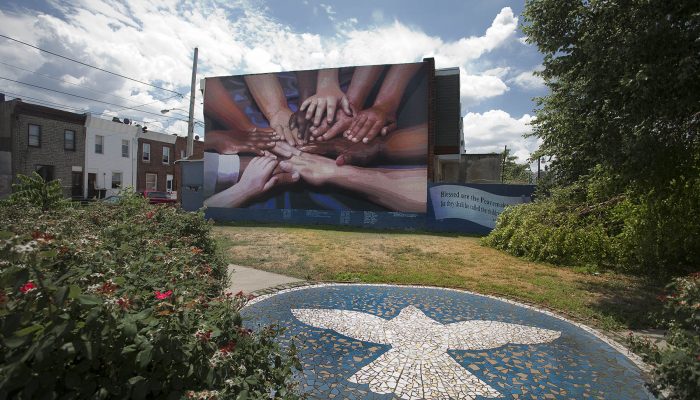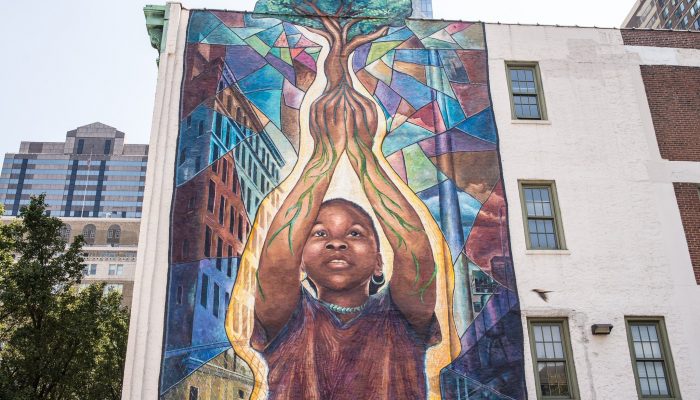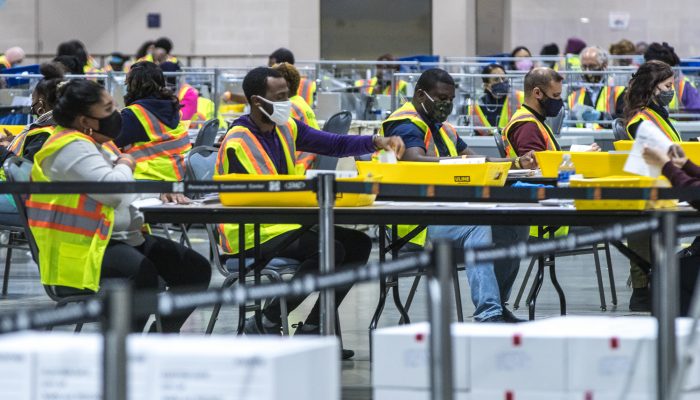This Op-Ed was written by Rev. Naomi Washington-Leapheart, Director for Faith-Based and Interfaith Affairs, Office of Public Engagement
I have never gotten used to eulogizing someone I didn’t know, though sometimes I’ve had to do it in my role as a faith leader. A eulogy is a sacred remembrance of someone’s life. It is disconcerting to meet someone for the first time in death. Recently, when 27-year-old Walter Wallace Jr. was laid to rest, I reflected on the way it seems as if he has only come alive in death.
This is what our death culture demands: that Black people, in particular — poor and not, queer, trans, and not, disabled and able-bodied — are robbed of our full humanity. We are made real only through the hashtags, tributes, and protests that accompany our deaths. This pattern — systemic invisibility in life followed by visibility at death — is wrong.
Walter Wallace Jr. was known during his life. He was known to his neighborhood. He was known to his treatment team at the West Philadelphia Consortium. He was known to his wife and children. He was known to his mother and father. He was known before he was cut down by 14 bullets. He was not a problem for institutions to neglect, evaluate, control, pity, solve, or revile. He was a full human being who deserved the space to grow, stumble, and thrive.
As a faith leader and a Black person, I want this dehumanization to stop. I call on leaders in every sector of our city to stop building and investing in social, political, and economic systems that hasten death instead of enabling life. Any reforms to our criminal justice systems must take seriously the fact that American policing was first established to terrorize enslaved Black people, and eventually became a well-funded enforcement mechanism for racist notions of disorder and criminality.
Some questions our leaders must ask themselves as they dismantle this dehumanization:
- What if violence was not our reflexive response to human pain, distress, fear, sickness, and struggle? What if our police department could imagine better, more humane options, beyond the binary of Tasers and guns?
- What if every city and community-based agency shared the financial responsibility and joy of using our talents, training, resources, and political will to preserve each other’s lives?
- What if systemic accountability, healing, repair, and transformation were our urgent and primary judicial goals — rather than systemic aggression, surveillance, prosecution, and mass incarceration?
- What if our mayor and City Council guided our policies by a metric of wholeness and not one of conformity?
We don’t have to wait for investigations to be completed or for budget allocations. These are essential questions we can ask now.
I don’t know what the answers are, but here’s what I do know: systems of white supremacy dehumanize completely. We all must resist. We must hold responsible those who, without regret, apology, or culpability, have caused Black communities harm. We can do this without sacrificing our shared value of brotherly and sisterly and sibling love.
To be sure, the work of striving for wholeness is slow, tedious, costly, and imperfect. Grasping too quickly for solutions can lead to grasping old solutions. Dispatching tools of warfare into a grieving community is an escalation. Snatching a mother and child from their car as they are trying to drive home is an escalation. We must ask new questions. We must construct new frameworks. Only then will our on-the-ground solutions work. Human wholeness is the only redemptive and sustainable destination. This is the only path worth walking.
After the death of Walter Wallace Jr. and many who came before him, our beloved city is traumatized. This is not the way it’s supposed to be. But none of this is inevitable. Justice and reconciliation are possible. With radical hope, imagination, intention, humility, and vulnerability, we must set humanity as our sole calibration. The answers we seek are there waiting for us.
The Rev. Naomi Washington-Leapheart on behalf of the Mayor’s Commission on Faith-Based and Interfaith Affairs. FaithPHL@phila.gov
The opinion piece published in The Philadelphia Inquirer can be found here.



